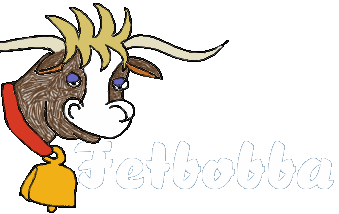Sköldkörtelvärden är ju en ren djungel och det enda värde jag på rak hand kommer ihåg nåt om är TSH som ska vara lågt, gärna under 1.0.
Enligt Ray Peat alltså

I consider even the lowest TSH within the "normal range" to be consistent with hypothyroidism; in good health, very little TSH is needed. When the thyroid function is low, the body often compensates by over-producing adrenalin. The daily production of adrenalin is sometimes 30 or 40 times higher than normal in hypothyroidism. The adrenalin tends to sustain blood sugar in spite of the metabolic inefficiency of hypothyroidism, and it can help to maintain core body temperature by causing vasoconstriction in the skin, but it also disturbs the sleep and accelerates the heart.
Mary Shomon: You have written that for some people, there is a problem converting T4 to T3, but that diet can help. You recommend a piece of fruit or juice or milk between meals, plus adequate protein, can help the liver produce the hormone. Can you explain a bit more about this idea and how it works?
Dr. Ray Peat: The amount of glucose in liver cells regulates the enzyme that converts T4 to T3. This means that hypoglycemia or diabetes (in which glucose doesn't enter cells efficiently) will cause hypothyroidism, when T4 can't be converted into T3. When a person is fasting, at first the liver's glycogen stores will provide glucose to maintain T3 production. When the glycogen is depleted, the body resorts to the dissolution of tissue to provide energy. The mobilized fatty acids interfere with the use of glucose, and certain amino acids suppress the thyroid gland. Eating carbohydrate (especially fruits) can allow the liver to resume its production of T3.
When too little protein, or the wrong kind of protein, is eaten, there is a stress reaction, with thyroid suppression. Many of the people who don't respond to a thyroid supplement are simply not eating enough good protein. I have talked to many supposedly well educated people who are getting only 15 or 20 grams of protein per day. To survive on that amount, their metabolic rate becomes extremely low. The quality of most vegetable protein (especially beans and nuts) is so low that it hardly functions as protein. Muscle meats (including the muscles of poultry and fish) contain large amounts of the amino acids that suppress the thyroid, and shouldn't be the only source of protein. It's a good idea to have a quart of milk (about 32 grams of protein) every day, besides a variety of other high quality proteins, including cheeses, eggs, shellfish, and potatoes. The protein of potatoes is extremely high quality, and the quantity, in terms of a percentage, is similar to that of milk.
Höll på att glömma länken men jag vet ju att du Hemul inte läser den i alla fall
 http://www.thyroid-info.com/articles/ray-peat.htm
http://www.thyroid-info.com/articles/ray-peat.htm


